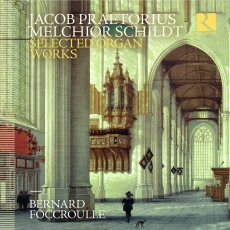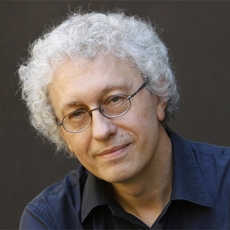Bernard Foccroulle - Praetorius & Schildt: Selected Organ Works - American Record Guide
Jacob Praetorius the younger (1586-1651) and Melchior Schildt (1592-1667) were two of the leading figures in North German organ music in the first half of the 17th Century. Both were born into musical families. Their fathers were organists, and they were among the first of many North Germans to study with Sweelinck in Amsterdam. Praetorius was a native of Hamburg, where he was appointed organist at St Peter’s Church at the age of 18. When his father died in 1629, he also became organist at St Gertrude’s Church. Johann Mattheson (1681-1764) remarked that Praetorius had a reputation for gravity and propriety in contrast with his Hamburg contemporary Heinrich Scheidemann (c1595-1663), who was noted for his geniality and easy-going manner. To some extent, this gravity can be heard in Praetorius’s music, with its serious personality and rigorous contrapuntal writing; but as Bernard Foccroulle observes in his notes to this recording, the composer was also capable of exuberance and florid virtuosity. He is represented here by two sets of chorale variations, an understated prelude, and an ambitious chorale fantasia on ‘Durch Adams Fall’. That work survives as a fragment. Foccroulle performs his own completion of the piece, nearly doubling its length. It is one of the earliest organ works to specify an instrument of three manuals. Two manuals are used for solos and echos so beloved of the North German school, while the third manual furnishes an accompaniment. Schildt was born in Hanover, where the city council awarded him funds to study with Sweelinck from 1609 to 1612. He was organist at Wolfenbüttel from 1623 to 1626. For the next three years he was organist to the court of King Christian IV of Denmark, but returned to Hanover in 1629 and succeeded his father as organist of the Market Church of Sts George and James. His works here are a set of chorale variations, a brief prelude similar in character to the one by Praetorius, and a set of Magnificat verses based on a plainsong tone that is adaptable to verses of different lengths. Both composers display the imaginative ingenuity and animation that the best organists of their time brought to the elaboration of liturgical melodies and hymns. The organ for this recording is at St James’s Church in Lübeck, an instrument of three manuals and pedals with 33 stops. It dates back to a Gothic instrument of 1467. The pipes of that organ survive in the Hauptwerk chorus of the present one. Friedrich Stellwagen enlarged the instrument in 1636-37, adding the Rückpositiv, Brustwerk, and pedal divisions. In 1978 the Hillebrand brothers completed the most recent restoration of the organ and added nine additional registers in the style of Stellwagen. The tone is brilliant and clear but refined and ingratiating. As I listened, I could hear no action noise—a very rare circumstance with historic organs. The instrument has a wealth of very fine reed stops that Foccroulle uses extensively both for solo registers and chorus reeds. One could hardly ask for a more appropriate and attractive vehicle for the works of Praetorius and Schildt. Bernard Foccroulle gives us no-nonsense performances of historical integrity, but with an admirable sensitivity to the character, phrasing, and pace of the music. While many performances of early music come across as antiquarian exercises in performance practice with little artistic personality, these are genuinely musical. Combine that with a magnificent instrument beautifully recorded, and we have a recording that should be in the collection of any admirer of the North German organ repertory. According to a note on the back cover of the CD folder, this is the last installment in an anthology of recordings of North German organ music. Foccroulle has recorded works by Dietrich Buxtehude, Franz Tunder, Heinrich Scheidemann, and Nicolaus Bruhns. I confess that I have not heard them, but if they are of the same standard as this volume, they are worthy of attention.

